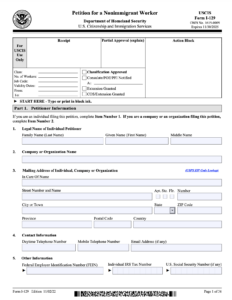Fifth Circuit Refuses to Stay Injunction of Texas Border Law
On Tuesday, a three-judge panel of the Court of Appeals for the Fifth Circuit denied a request by the state of Texas to stay a district court preliminary injunction that blocks the state from implementing Senate Bill 4 (SB 4), a law that criminalizes illegal entries into the state over an international border. That denial was not unanimous, and the dissenting judge lays out a map for where this case is going.
SB 4. If it were allowed to take effect, SB 4 would make it a crime for an alien to illegally enter Texas “directly from a foreign nation at any location other than a lawful port of entry”. Of course, Texas only borders one “foreign nation”, and thus the focus of that provision is on migrants crossing the Rio Grande illegally from Mexico.
That crime would be a class B misdemeanor under Texas law for a first offense (carrying a penalty of up to 180 days in jail and a $2,000 fine), and a felony with a possible penalty of two years or more and a fine up to $10,000 for aliens who illegally reenter after a prior conviction.
The real heart of that bill, however, is a provision allowing state magistrates to dismiss first-offense charges against alien defendants who agree to return voluntarily back across the border. Note that Texas could not deport those aliens — only DHS could do that — but the practical effect, theoretically, would be roughly the same.
“Theoretically”. “Theoretically” is all I have to go on, because the federal government sued Texas to prevent the state from implementing SB 4 on January 3, just less than two months before it was to take effect on March 1.
The case was assigned to Judge David Ezra of the U.S. District Court for the Western District of Texas, and if his name sounds familiar, it’s likely because he’s the same judge who last September ordered the state to remove buoys it had placed in the Rio Grande near Eagle Pass, Texas, to deter migrants from crossing the border illegally there.
In any event, as my colleague Elizabeth Jacobs has explained, Judge Ezra issued an order on February 29 granting the administration’s request for a preliminary injunction, essentially stopping the state from enforcing SB 4 the day before it was due to take effect.
The First Circuit Court Order. The day Judge Ezra issued his order, Texas filed a notice of appeal with the Fifth Circuit, and on March 2, a three-judge panel of the Fifth Circuit issued a temporary administrative stay of Judge Ezra’s preliminary injunction.
That purely ministerial action should have allowed SB 4 to take effect, except for the fact that in its brief, unpublished, and per curiam (unsigned and issued for the whole panel) order, the panel stayed its administrative stay for seven days at the administration’s request to allow DOJ to file an application with the Supreme Court to vacate that administrative stay.
That’s exceptional for any number of reasons, not least of which is that the Supreme Court has never apparently considered an application to vacate an administrative stay, a judicial act that is, as one expert has explained: “a little examined device … federal courts employ to freeze legal proceedings until they are able to rule on a party’s request for a stay pending appeal”.
The Supreme Court Order — and the Second Fifth Circuit Order. Nonetheless, DOJ filed an application with Justice Alito as the circuit justice for the Fifth Circuit to vacate the circuit panel’s administrative stay, in response to which the justice himself administratively stayed the circuit court’s administrative stay three times over a two-week period to allow his fellow justices to consider the parties’ arguments.
At this point in the analysis, I feel less like a trained lawyer than a traffic cop trying to direct all the paper flying from DOJ to Texas to various courts and back again.
At this point in the analysis, I feel less like a trained lawyer than a traffic cop trying to direct all the paper flying from DOJ to Texas to various courts and back again. Suffice it to say that SB 4 is an unprecedented law, and everyone save Texas has been moving very deliberately.
That said, on March 19, the Supreme Court issued an opinion denying DOJ’s application to vacate the Fifth Circuit’s administrative stay.
As a practical matter, that opinion was not that big of a deal given the fact that hours later, a separate Fifth Circuit panel (this one assigned to adjudicate Texas’ appeal of Judge Ezra’s order) issued a second per curiam order dissolving the earlier administration stay.
As a legal matter, however, that Supreme Court opinion may — and I stress may — signal that at least four justices, and possibly as many as six, think SB 4 may not be the nonstarter constitutionally Judge Ezra found it to be.
Again, absent that second Fifth Circuit order, Texas could have started arresting aliens caught illegally crossing the Rio Grande under SB 4 and sending at least some of them back across the border. If the whole concept was legally misbegotten, the justices could have sat on it until the Fifth Circuit acted, which would have rendered DOJ’s application to the Court moot.
The Fifth Circuit’s March 26 Denial and “The Machete of Global Invalidation”. Which brings me to the March 26 denial by the current Fifth Circuit panel of Texas’ request to stay Judge Ezra’s preliminary injunction, pending the circuit court’s full consideration of the state’s appeal of that order.
Omitted from my history of this case above is the fact that one panelist, Trump-appointee Andrew Oldham, dissented from the March 19 order dissolving the administrative stay (i.e., arguing that the Texas law should be allowed to go into effect). He would have left that stay in place pending the oral argument on the state’s request for a real stay, which was scheduled for and occurred on March 20.
Judge Oldham also dissented from the panel’s March 26 denial of Texas’ request for a stay of Judge Ezra’s injunction. He would have granted that request, reasoning: “To defend that global injunction, and to take from Texas its sovereign prerogative to enact a law that its people and its leaders want, plaintiffs must show that S.B. 4 is unconstitutional in every one of its potential applications.”
That, he found, the plaintiffs had failed to do. His dissent runs nearly 70 pages in that 121-page denial, but here are the key points:
In our federal system, the State of Texas is supposed to retain at least some of its sovereignty. And its people are supposed to be able to use that sovereignty to elect representatives and send them to Austin to debate and enact laws that respond to the exigencies that Texans experience and that Texans want addressed. The people of Texas also elect state judges who are entrusted to interpret both state and federal law. And much (all?) of the federal system depends on the presumption of parity — that state courts are just as well-equipped and just as capable as their federal counterparts at interpreting and implementing federal law.
. . .
If S.B. 4 had been allowed to go into effect, there are at least some applications of it that would have comported with the Constitution’s Supremacy Clause. And even if a particular application of S.B. 4 raised particular preemption problems, they could be solved with the scalpel of as applied relief in a future case as opposed to the machete of global invalidation in this one. For example, the majority’s principal concern — that aliens could be subjected to S.B. 4 without the procedural and substantive federal rights afforded to asylees, refugees, &c. under federal law — could be redressed by as-applied injunctions against the state law’s non-abatement provision. That would allow the state law to go into effect in at least some cases while preserving the supremacy of federal law in all cases. The people of Texas are entitled to the benefit of state law right up to the point where any particular application of it offends the Supremacy Clause. And Texas state officials should be trusted at least to try sorting those constitutional applications from any potentially unconstitutional ones. [Internal citations omitted.]
You don’t need to know much about the Supremacy Clause (Article IV, clause 2 of the U.S. Constitution), the arguments in this case, or even federalism generally to understand the points he’s making: Texas is a sovereign state; its location on the border presents unique issues; and it has its own judges who are perfectly competent to rule on constitutional issues as they arise.
Therefore, he argues, the circuit panel should allow the law to take effect, which would allow it see what actually happens when SB 4 is enforced.
What’s Next. The Fifth Circuit panel will hear Texas’ appeal of Judge Ezra’s preliminary injunction on April 3, and Judge Oldham for one is not optimistic, expecting the same 2-1 split that the state’s request to stay that injunction garnered, and for the state’s appeal of the preliminary injunction to be denied.
At that point, Texas would have three choices: (1) allow the case to be sent back to Judge Ezra to rule on plaintiffs’ motion for a permanent injunction; (2) appeal the circuit panel’s dismissal of its appeal to the Supreme Court; or (3) seek rehearing of its appeal en banc, to all 17 judges on the Fifth Circuit.
My money’s on the third option, particularly given the fact that six of those circuit-court judges were appointed by President Trump and that the court as a whole has been sympathetic to Texas on border issues in the past.
That’s not the only reason, however. The Supreme Court’s current term ends in early July, and the next won’t start until October 7. Consequently, this case won’t be heard this term, and even if this were the first case the justices heard in October, there is no way the Court would issue a major immigration opinion days before the November elections.
If I’m right, the next question then becomes whether the en banc court stays Judge Ezra’s preliminary injunction. If the court does, expect DOJ to head directly back to the Supreme Court.
For the time being, SB 4 is only theoretically a Texas state law that criminalizes illegal entries across the Rio Grande. Whether that remains true forever depends on litigation strategy and the willingness of federal judges to trust their colleagues on the Texas state-court bench.





